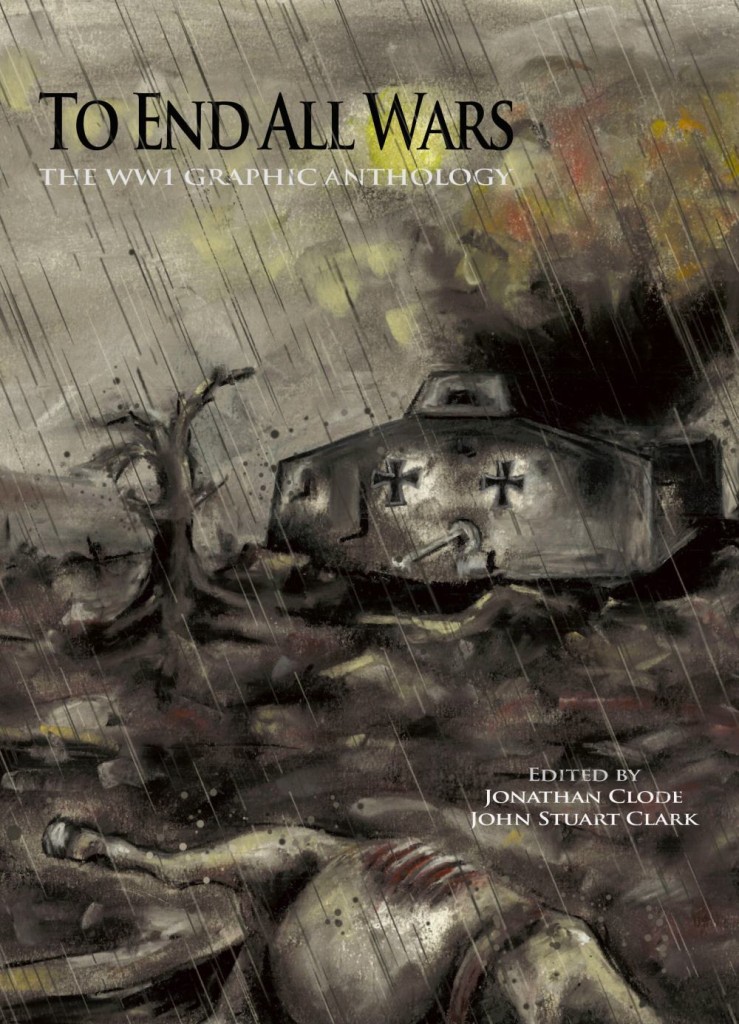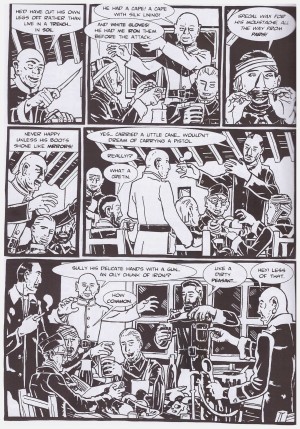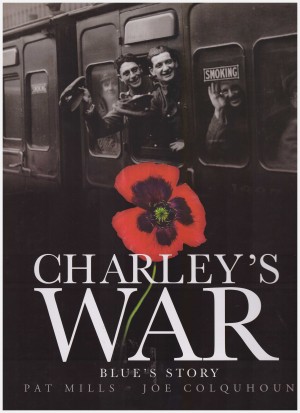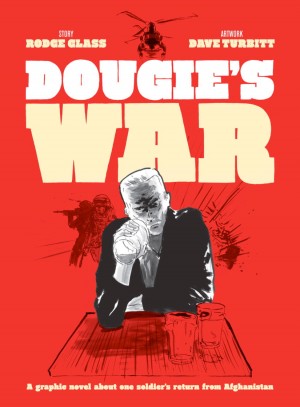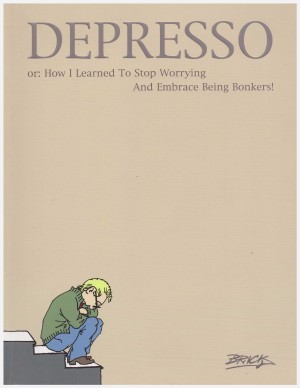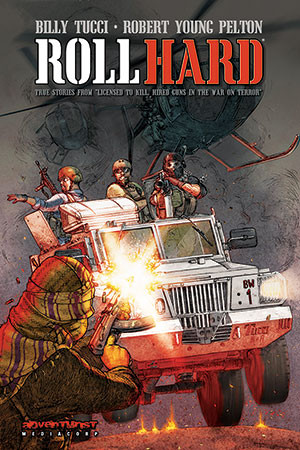Review by Frank Plowright
There has never been a war anthology with the passionate scope of To End All Wars, a production released to coincide with the centenary of World War I starting. The dedication to the 16.5 million lives sacrificed to political expediency highlights this doesn’t just concern brave, patriotic Tommies, nobly sacrificing themselves for a supposedly grateful nation, but the sheer variety of topics covered is nonetheless impressive. The citizens of many countries are involved, including Germany, and most of the material focuses on ordinary people.
The case for the prosecution is handled in Brick’s opening strip, which borrows everyman soldier Švejk from Jaroslav Hašek’s 1920s absurdist anti-war satire for a Hague war trial interrogating the major players. Brick lays out matters as clearly as possible, but proceedings remain inordinately complex. When not being Brick, John Stuart Clark co-edited the book with Jonathan Clode. Both also write a strip.
Spotlighting just four strips from the 27 on offer adequately conveys the flavour. ‘No More than Cattle’ is an artistic highlight, illustrated in a grey-shaded almost Manga style by Mike Lito, and presents the depth of research common to much of the writing. Colm Regan’s script is masterfully subtle in inserting a vast amount of background information while still supplying a very personal narrative about the way World War I spread to Africa due to Britain and Germany both having colonial possessions, and the uprising this prompted.
Representing the more problematical art we have the compulsive over-rendering of Danos Phililopous. This is on ‘Truth Be Told’, an otherwise very good story about family conflict centring on the choice of one son to become a journalist rather than an infantryman. His choice of profession is viewed as cowardly by the boy’s father, unable to see the merit in accurate news from the front. Pippa Hennessy’s script airs all the issues and throws in a well-delivered resolution.
Steven Martin’s ‘Allies of Reason’ has little action, but plenty of discussion concerning republicanism, a state that separated the French from the British and the Germans, who both nominally fought the war in the name of rulers. Martin characterises his cast well, and his starkly contrasted black and white illustration (featured) is occasionally reminiscent of Warren Pleece.
Pleece is seen later drawing brother Gary’s ‘Mud, Lice and Vice’, among the best strips on offer. Gary’s crisp and funny dialogue and Warren’s deadpan art characterising life in the trenches as experienced by Lucky Dick. And yes, that is a pun, quite a clever one actually, well exploited during an inspection scene and echoing Lucky Jim.
This is a project that ticks so many necessary boxes, including artistic diversity, but the one fundamental failing is that the editorial tolerance extended too far. An excess of loose figures, or over-rendered panels, or dull layouts erodes the goodwill and enthusiasm that Pat Mills’ introduction engendered.
